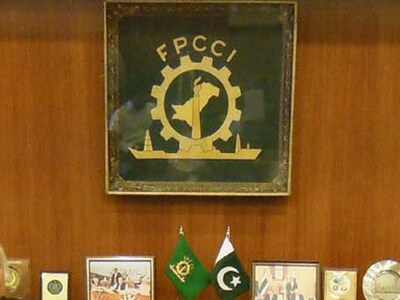BMP Criticizes Federal Budget, Cites Lack of Concrete Strategy
LAHORE: The Businessmen Panel (BMP) of the Federation of Pakistan Chambers of Commerce and Industry has voiced significant apprehension regarding the Federal Budget. They describe it as a document brimming with theoretical optimism but deficient in the practical execution needed to tackle Pakistan’s entrenched economic and industrial issues.
The BMP leadership commented that the government overlooked a crucial chance to instigate structural overhauls and offer the private sector tangible assistance to alleviate ongoing economic difficulties, escalating production expenses, and export downturn.
Shortcomings in Industrial Growth
BMP Chairman and former FPCCI President Mian Anjum Nisar stated that the budget neglected to lay out a feasible strategy for industrial expansion, job creation, or substantial advancement in the manufacturing industry. He lamented that, instead of supporting businesses, the budget focused on tax revenue objectives without resolving core problems impacting productivity and competitiveness. He emphasized that Pakistan’s economic recovery hinges on the proactive involvement and backing of the business sector, which continues to feel disregarded despite repeated pledges of stakeholder-driven policy.
Concerns Over Taxation
Nisar criticized the government’s heavy dependence on indirect taxation and temporary fiscal measures, cautioning that this strategy will only exacerbate inequality and impede enduring economic planning. He highlighted that the government has implemented stringent tax measures without corresponding improvements in documentation and enforcement, sparking worries of harassment among already compliant enterprises. He strongly disapproved of granting tax authorities unrestricted powers, such as freezing business accounts without prior notification, deeming them anti-business and against the principles of voluntary compliance and trust-building.
Infrastructure Deficiencies
He noted that the Rs1,000 billion allocated for development expenditure is insufficient to address the urgent infrastructure needs of Pakistan’s economy, particularly in industrial zones, ports, logistics corridors, and power transmission infrastructure. He added that unless these funds are utilized transparently with rigorous project prioritization, their influence will be limited. He urged the government to revitalize prolonged industrial and transport infrastructure projects, which are vital for enhancing supply chains and lowering the cost of conducting business.
Neglect of Value-Added Sectors
He also conveyed profound disappointment regarding the ongoing neglect of value-added industries, notably textiles, apparel, and light engineering, which constitute the foundation of Pakistan’s export economy.
Call for Tax Reforms
Nisar restated the BMP panel’s persistent demand for the reinstatement of the zero-rated system and the elimination of procedural obstacles in sales tax refunds. He observed that working capital remains locked in refund cycles, resulting in a liquidity crunch for exporters already contending with narrow margins and delayed deliveries.
He advocated for a thorough reconsideration of the nation’s tax approach. Rather than imposing additional burdens on the formal sector, the government should broaden the tax base by targeting untaxed sectors and improving documentation through sensible incentives. The business community has consistently pushed for a simplified and predictable tax system with decreased compliance expenses, a need that remains unmet in the current budget.
Need for Structural Changes
The panel emphasized that a genuine economic recovery can only be realized through structural reforms, decreased reliance on IMF programs, and the creation of a long-term industrial strategy. It underscored that over-reliance on remittances, foreign loans, and import-based revenues is unsustainable and exposes the nation to recurring cycles of crises. BMP implored the government to transition from short-term crisis management to institutional capacity-building, export diversification, and innovation-driven growth.
BMP reaffirmed its dedication to supporting Pakistan’s business community and providing constructive solutions. However, it stressed that the government must align its rhetoric with tangible actions and collaborate closely with stakeholders to elevate the economy from stagnation towards sustainable, inclusive expansion.



Comments (0)
No comments yet. Be the first to comment!
Leave a Comment